It’s only natural that most diet plans focus on the contents of your plate—after all, when you think about calories, you generally think about food. But for successful weight loss in the new year, it’s smart to give some thought to what’s in your cup (or mug… or tumbler… or bottle) too. Beverages are a hidden source of calories and added sugars that can add up fast as you sip. In fact, one study found that drinks accounted for 20% of the calories Americans consume!
Unfortunately, all those drinkable calories often aren’t as satiating as the ones from food (hence the often-used term “empty” calories). Rather than filling you up, they may simply pad your daily caloric intake, derailing your weight loss efforts.
If you’re looking to shed a few pounds in 2023, dietitians recommend limiting these eight beverages. And for more, don’t miss the #1 best drink for weight loss, according to a dietitian.
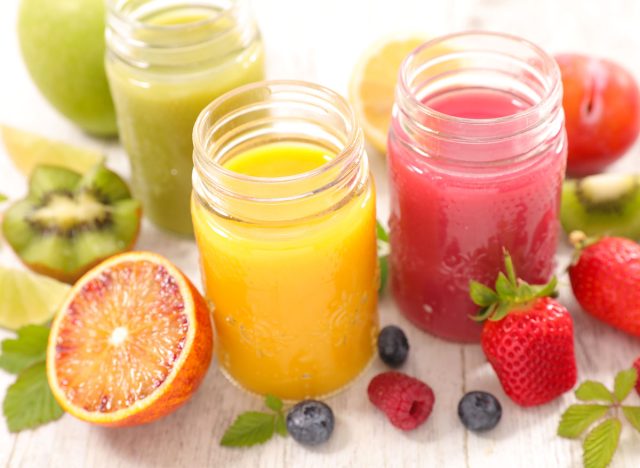

A glass of juice may officially “count” as a serving of fruit, but it doesn’t have the same weight loss benefits as fresh produce. “Fruit juices can provide beneficial nutrients like vitamin C and potassium, but the calories can add up quickly,” says registered dietitian Melissa Altman-Traub, MS, RDN, LDN. “Try serving juice in a small glass, or drink water with a squeeze of fresh orange or lime instead.”
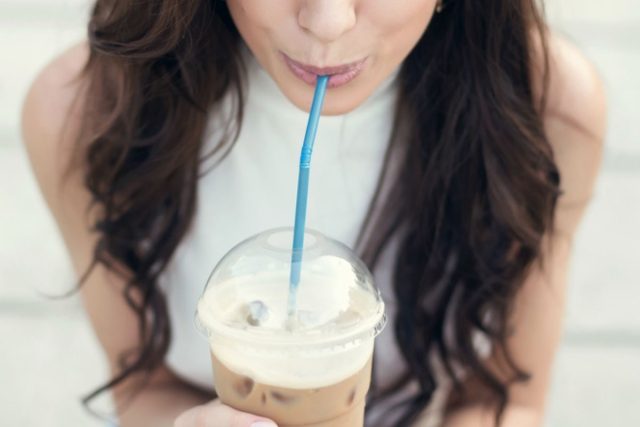

You’re probably aware that a venti Frappuccino isn’t exactly weight-loss-friendly. “A daily drive-thru coffee drink can have a lot of added sugar, more than expected,” says registered dietitian Jennifer Fiske, MS, RDN, LD. Fortunately, that doesn’t mean you have to give up all tasty caffeinated beverages. Do a little research on the nutrition info for your favorite coffee shop’s offerings. You may be able to find tweaks that cut calories, fats, and sweeteners. “I’ll look at the menu with a client and swap the syrups, remove whipped cream, or find a similar beverage that’s lower in calories and sugar,” Fiske says.
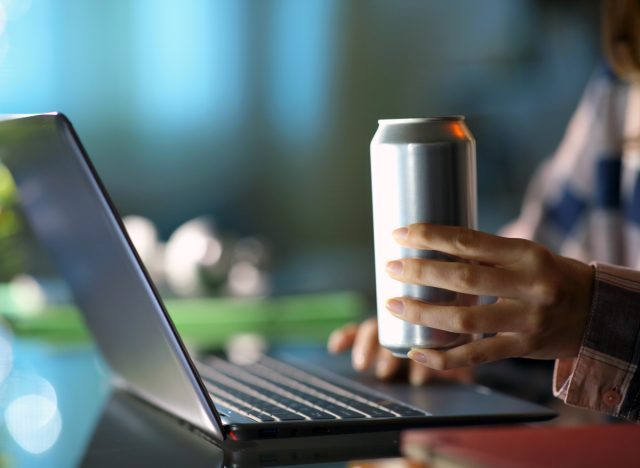

The “energy” in energy drinks doesn’t just come from herbal ingredients like ginseng or matcha. It also frequently comes from a hefty amount of calories and sugars. And this may not be the only downside of these pick-me-up beverages. “Apart from adding calories to your diet, energy drinks are linked to a number of health problems, including increases in heart rate and blood pressure, anxiety, sleep disturbances, and gastrointestinal issues,” says registered dietitian Johna Burdeos, RD. “Mounting evidence shows that a lack of sleep is linked to disturbances in neurotransmitters that regulate appetite, so you may eat more if you’re sleep deprived.”
READ RELATED: Signs You Have an Ear Infection And How to Prevent It
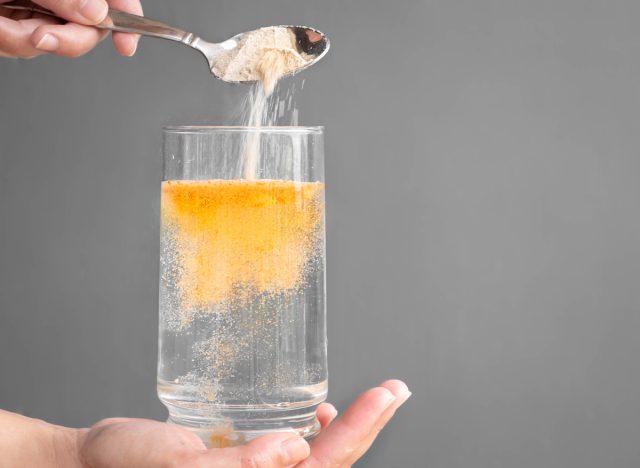

Hydration supplements have made a splash in the last few years with the promise of keeping your fluids balanced. While they can be useful for this purpose, they’re not always a great choice for weight loss. “Hydration drinks can add unnecessary calories from added sugars,” points out registered dietitian nutritionist Amanda Liptak, RDN, CLT, CA, of Nutrient Rich Life. “These types of drinks aren’t made for everyday use. If you want to flavor your water, go for freshly squeezed fruit, herbs, or a non-caloric electrolyte replacer instead.”
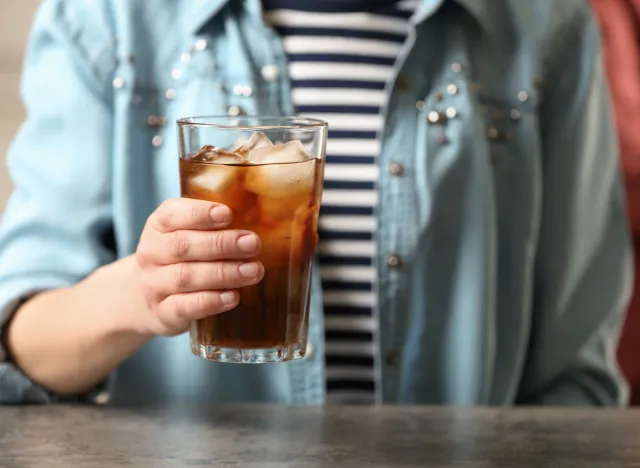

No surprises here! Regular soda is a serious source of added sugar. Study after study has linked soft drinks with weight gain and obesity. “Their empty calories and sugar won’t turn off your brain’s hunger center,” says Lisa Andrews, MEd, RD, LD, owner of Sound Bites Nutrition. For a fizzy and flavorful alternative, try a flavored sparkling water like Waterloo or a lower-sugar kombucha like Health-Ade.
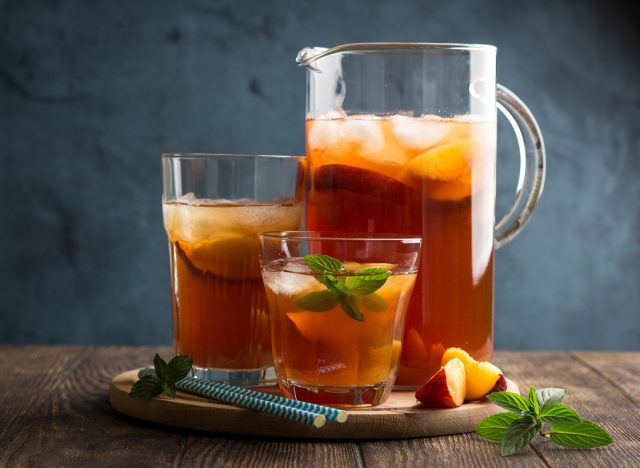

“Tea is a healthy beverage due to the antioxidants it contains, but a lot of the iced teas available in the store come sweetened and have as much sugar as soda,” says registered dietitian Jennifer Ryan-Furfari, RDN. Still, it’d be a shame to delete the anti-inflammatory properties of tea from your diet. “I usually recommend buying or making unsweetened tea and adding a small amount of a healthy sweetener like honey or maple syrup,” Ryan-Furfari suggests. “Fresh lemon juice can also be added in place of sugar for an even healthier version.”
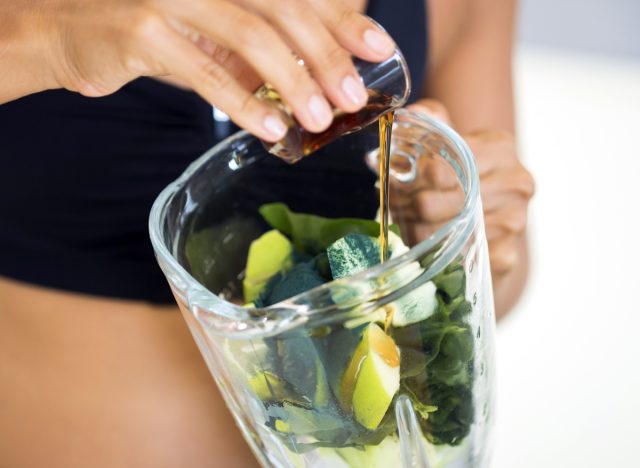

Not all smoothies are created equal for weight loss. “While smoothies are often filled with nutritious ingredients like fruit, veggies, and yogurt, the calorie load can be quite high,” says Andrews. “In addition, you miss out on chewing, which can provide satiety to aid with weight loss.”
As you craft your morning smoothie, consider the ingredients you use. Unsweetened plant-based milks, for example, are significantly lower in calories than cow’s milk, and low-cal bananas can add bulk instead of heavier choices like nut butters and full-fat yogurt.
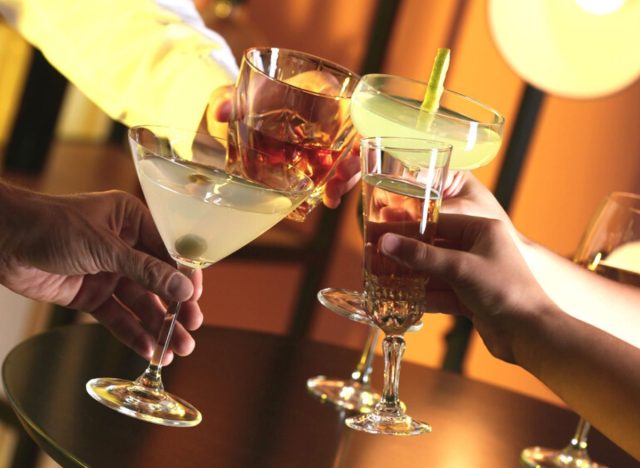

According to the CDC, American adults consume an average of nearly 100 calories per day from alcoholic beverages—and if you’re downing a beer or glass of wine with dinner each night, the total is even higher. (A 12-ounce beer contains about 150 calories, while a 5-ounce glass of red wine comes with 125 calories.)
To achieve weight loss, Fiske emphasizes moderation with alcohol. “Clients often don’t realize their nightcap is two to three servings per drink. I check portions by encouraging measuring alcohol if the client is willing, and swap mixers for lower-calorie options. Clear spirits are lower-calorie, so sometimes we’ll swap that as well.” Need some inspiration? Check out these dietitian-approved alcoholic drinks for weight loss.
Source:









